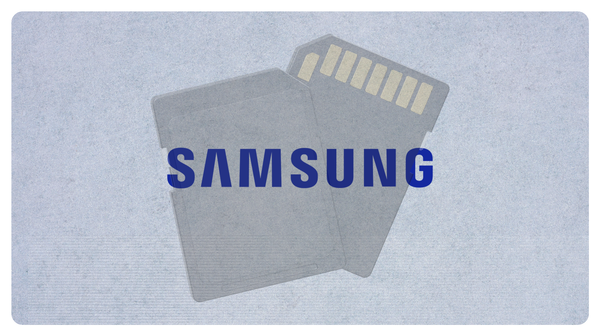Amazon's £30bn AI Infrastructure Coup

In a sentence:
Amazon Web Services has secured a £30bn seven-year partnership with OpenAI, cementing AWS as the dominant cloud infrastructure provider for cutting-edge AI development whilst triggering a 4.6% share price surge as investors recognise the deal locks in recurring revenues through 2032.
6 Key Points in 1 Minute ⏱️
💰 Blockbuster Deal Economics - The £30bn contract over seven years (£4.3bn annually) represents one of tech's largest infrastructure commitments, with full capacity deployment by 2026 and extension options that could push total value beyond £40bn.
🎯 AWS Competitive Moat - By securing OpenAI's massive compute requirements, Amazon blocks rivals Microsoft Azure and Google Cloud from capturing the world's most prominent AI company, consolidating AWS's position as the infrastructure backbone for frontier AI research.
📊 Market Validation Surge - Amazon shares jumped 4.6%, Nvidia gained 3.2%, and Microsoft edged up as investors recognised the deal validates continued AI infrastructure spending despite recent concerns about sky-high valuations and return timelines.
⚡ Nvidia Chip Dominance - OpenAI's commitment to "hundreds of thousands" of Nvidia's premium chips through AWS cements Nvidia's position as the AI semiconductor standard, creating a three-way value chain where AWS, Nvidia, and OpenAI mutually reinforce market leadership.
🔒 Strategic Lock-In Model - The seven-year term with extension provisions creates vendor lock-in that protects AWS from competition whilst giving OpenAI guaranteed capacity access—critical when compute availability increasingly determines competitive advantage in AI development.
🌍 AI Arms Race Escalation - Similar mega-deals with CoreWeave, AMD, and Broadcom demonstrate how AI infrastructure competition has evolved into a multi-billion-pound race where securing hardware capacity months ahead of rivals translates directly into technological leadership.
Buzzword Explainers 🧠
Cloud Computing Infrastructure - Network of remote servers hosted on the internet to store, manage, and process data rather than local servers, enabling massive computational tasks like AI model training at scale.
AI Compute Capacity - Measure of processing power available for artificial intelligence workloads, typically quantified by GPU count and performance, determining how quickly and extensively AI models can be trained and deployed.
Vendor Lock-In - Situation where customers become dependent on a single supplier's products or services due to high switching costs, technical dependencies, or contractual obligations, reducing competitive pressure.
3 Talking Points 💬
AWS Margin Expansion Story - "This deal transforms AWS from infrastructure provider to strategic AI partner, with long-term contracts at premium pricing protecting margins even as commodity cloud pricing faces deflationary pressure from competition."
Capital Allocation Efficiency - "OpenAI avoids £30bn+ in capital expenditure by leveraging AWS's balance sheet whilst Amazon monetises existing data centre investments, creating a capital-light model that venture investors cannot replicate."
Competitive Foreclosure Risk - "By locking up massive GPU capacity through AWS, OpenAI potentially denies competitors access to scarce Nvidia chips, raising competition concerns about whether infrastructure deals become anti-competitive weapons."
3 Smart Questions ❓
Strategic: "How might this AWS-OpenAI partnership influence Microsoft's strategic positioning, given Microsoft's £10bn OpenAI investment and Azure's role as OpenAI's previous primary infrastructure provider?"
Commercial: "What are the implications for smaller AI companies if AWS capacity is increasingly allocated to mega-deals like OpenAI, and how does this affect innovation in the broader AI ecosystem?"
Legal: "Could regulators view these exclusive infrastructure arrangements as market foreclosure, particularly when they concentrate compute capacity with a few dominant players?"
Law Firm Connections 🏛️
Latham & Watkins advised Amazon on AWS's previous mega-deals including the £8bn UK government cloud contract in 2024, positioning them as lead counsel for these complex infrastructure partnerships requiring data sovereignty and security compliance.
Skadden Arps represented OpenAI in its £10bn Microsoft investment round and ongoing corporate restructuring, making them prime advisers for this AWS partnership's commercial terms and governance provisions.
Freshfields handled Nvidia's supply agreements with major cloud providers throughout 2024-25, advising on the competition law implications of exclusive chip allocation arrangements that could face regulatory scrutiny.
Linklaters advised on Amazon's UK operations and regulatory matters, including £1bn+ technology partnerships, with their tech transactions team experienced in structuring these hybrid investment-commercial arrangements.
Model Answer 📝
"Amazon's £30bn OpenAI deal exemplifies the strategic infrastructure partnerships reshaping the AI competitive landscape. Unlike traditional cloud contracts, this arrangement functions as a long-term capacity reservation that locks in recurring revenue whilst denying competitors access to scarce GPU resources.
For corporate law firms, these deals require expertise across technology transactions, competition law, and securities regulation since they blur boundaries between customer relationships, strategic investments, and potential market foreclosure.
The seven-year term with extension provisions creates unusual commercial dynamics where both parties become mutually dependent AWS needs OpenAI's validation as the AI infrastructure standard, whilst OpenAI requires guaranteed capacity that standalone data centres cannot provide at this scale.
Competition authorities will likely scrutinise whether these arrangements unfairly disadvantage smaller AI companies by concentrating compute capacity with a few dominant players, creating advisory opportunities around market definition and foreclosure analysis."




